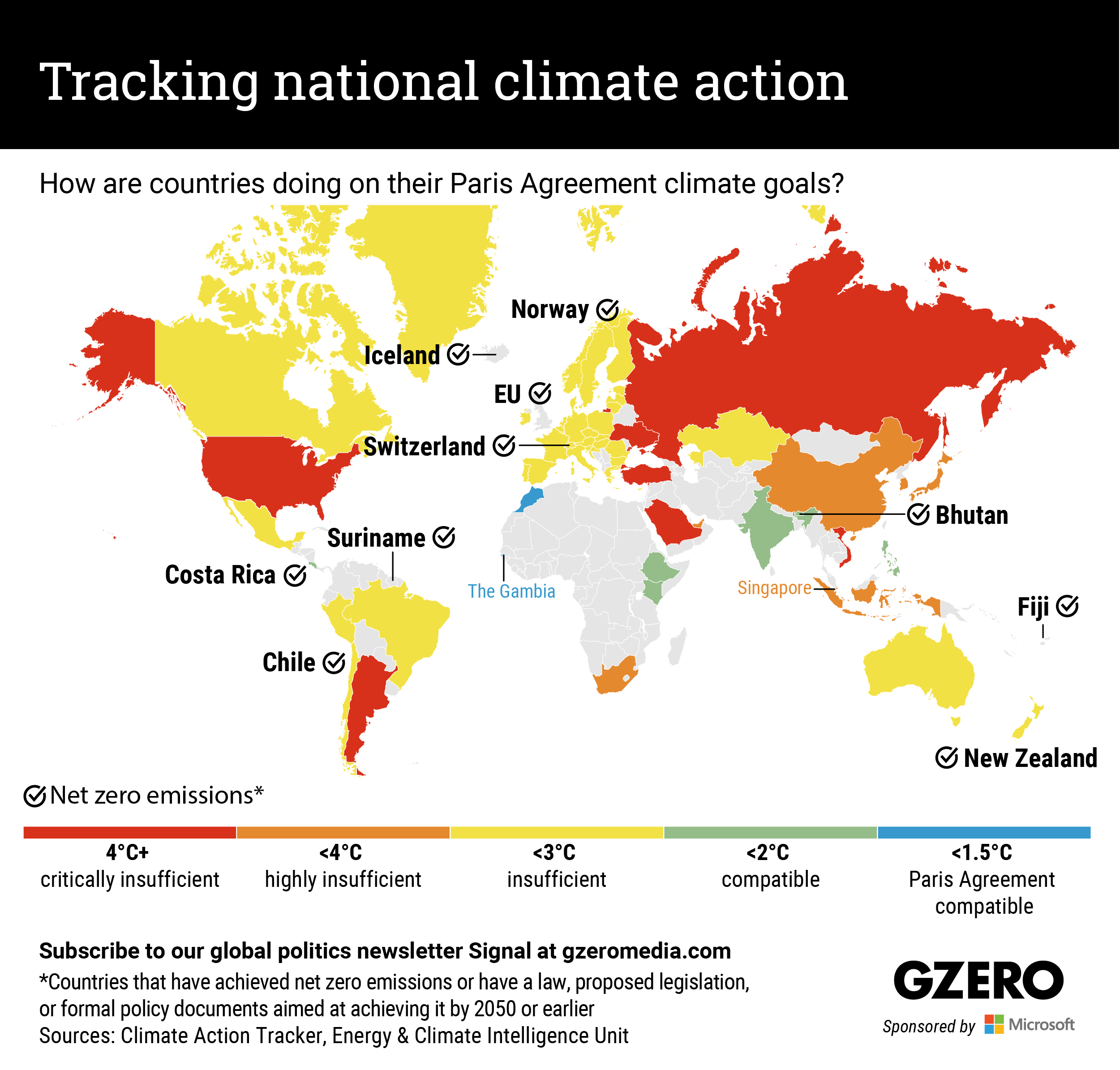September 13, 2020
Under the terms of the 2015 Paris Agreement, signatory countries agreed to make their own commitments to curb greenhouse gas emissions. At next year's UN climate change conference in Glasgow, nations will assess progress to date and (possibly) make bolder commitments, given technological progress and the mounting urgency to take climate action. But for now, only a handful of countries are on pace to limit warming to 2°C above preindustrial levels — let alone to meet the 1.5°C target that most scientists believe will help us avoid heaviest climate impact. A small group of intrepid governments aim to achieve "net zero" emissions in coming decades. We look at how certain nations are performing on climate action, and highlight those with plans to reach net zero.
From Your Site Articles
More For You
As expected, the Supreme Court struck down the bulk of Donald Trump's sweeping “Liberation Day” tariffs as illegal … and almost nothing changed.
Most Popular
What's Good Wednesdays
What’s Good Wednesdays™, February 25, 2026
Sponsored posts
Small businesses at a crossroads
Chris, an Army veteran, started his Walmart journey over 25 years ago as an hourly associate. Today, he manages a Distribution Center and serves as a mentor, helping others navigate their own paths to success. At Walmart, associates have the opportunity to take advantage of the pathways, perks, and pay that come with the job — with or without a college degree. In fact, more than 75% of Walmart management started as hourly associates. Learn more about how over 130,000 associates were promoted into roles of greater responsibility and higher pay in FY25.
Ukraine's President Volodymyr Zelenskiy, Finland's President Alexander Stubb, Estonia’s Prime Minister, President of the European Commission Ursula von der Leyen and other European leaders visit memorial to fallen Ukrainian defenders at the Independent Square on the fourth anniversary of Russia's full-scale invasion, in Kyiv, Ukraine February 24, 2026.
Ukrainian Presidential Press Service/Handout via REUTERS
Somewhere in the Donbas region, Ukrainian soldier Artem Bondarenko says he hasn’t slept through the night in months as he defends Eastern Ukraine.
- YouTube
In the latest episode of Vladimir Putin and Xi Jinping's hit wellness podcast This Authoritarian Life, we learn how positive communication patterns can break negative cycles in our relationships -- especially our relationships with Iran, Syria, Venezuela, and Cuba. #PUPPETREGIME
© 2025 GZERO Media. All Rights Reserved | A Eurasia Group media company.
